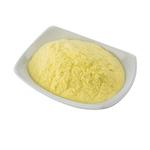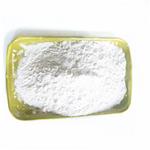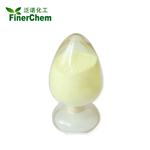Description
O-Anisaldehyde (also 2-methoxybenzaldehyde) is found in cassia oil, cinnamon bark, and cinnamon bark oil. It is a clear colorless liquid with a strong aroma.
O-Anisaldehyde is used as a flavor agent in foods including nonalcoholic/alcoholic beverages, baked goods, chewing gum, confections, frozen dairy, fruit ices, hard/soft candy, instant coffee, tea, Jams, jellies, and milk products. O-Anisaldehyde has been used to examine the acaricidal activity of Periploca sepium oil and its active component against Tyrophagus and to obtain good enantioselectivities using Cu(OAc)(2)-bis(oxazolines) via hydrogen bonding in asymmetric Henry reaction.
References
[1] George A. Burdock (2016) Fenraoli’s Handbook of Flavor Ingredients, Sixth Edition.
[2] https://www.alfa.com/en/catalog/A10770/
Description
o-Methoxybenzaldehyde has a faint, sweet, floral odor. It blends
well with cassia. It has a spice-like flavor, quite bitter above 30 -
40 ppm. May be prepared from salicylaldehyde and dimethyl sulfate in weak alkaline solution.
Chemical Properties
light yellow to pale brown
Chemical Properties
Colorless to cream amber crystalline powder; sweet powdery hawthorn guaiacol vanilla acetophenone almond aroma.
Occurrence
Reported found in Cassia oil, cinnamon bark, and Cinnamon bark oil (Cinnamomum zeylanicum Blume), Sri
Lanka (0.09–0.15%)
Uses
2-Methoxybenzaldehyde has been used to examine the acaricidal activity of Periploca sepium oil and its active component against Tyrophagus. It has also been used to obtain good enantioselectivities using Cu(OAc)(2)-bis(oxazolines) via hydrogen bonding in asymmetric Henry reaction.
Uses
2-Methoxybenzaldehyde has been used to obtain good enantioselectivities using Cu(OAc)(2)-bis(oxazolines) via hydrogen bonding in asymmetric Henry reaction.
Definition
ChEBI: 2-Methoxybenzaldehyde is a carbonyl compound.
Aroma threshold values
Medium strength odor; anisic type; recommend smelling in a 10.00% solution or less.
Taste threshold values
Sweet powdery guaiacol musty vanilla floral almond taste at 50 ppm in water.
Biochem/physiol Actions
Naturally-occurring aromatic aldehyde with acaricidal activity. May condense with L-tryptophan in foods to form the corresponding phenolic tetrahydro-β-carboline-3-carboxylic acid which is a potent antioxidant.
Safety Profile
Moderately toxic by
ingestion. A skin irritant. Mutation data
reported. Combustible liquid. When heated
to decomposition it emits acrid smoke and
irritating fumes.




